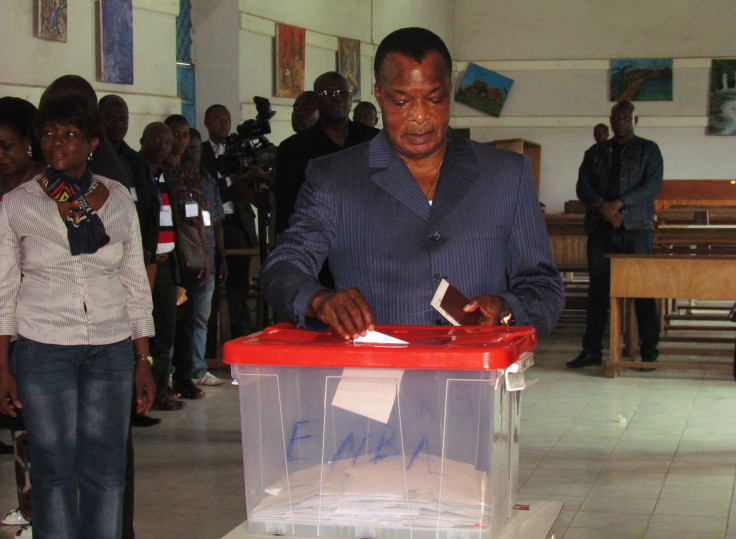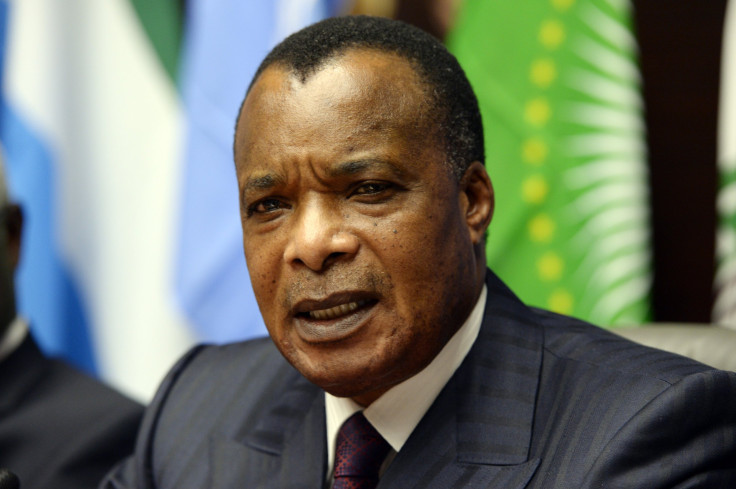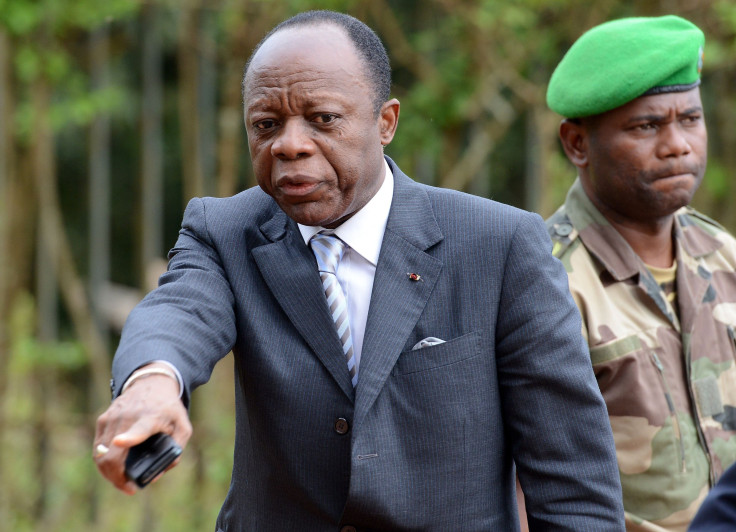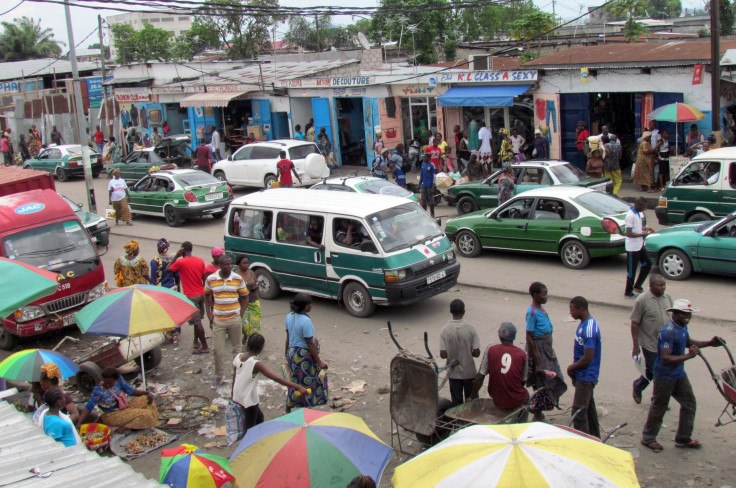Republic Of Congo Presidential Election 2016: Guide To Candidates, Issues, Rules And Results

Republic of Congo President Denis Sassou Nguesso is seeking to extend his 32-year grip on power over the oil-rich yet impoverished African nation in Sunday’s election. The 72-year-old incumbent, who is one of Africa’s longest-serving leaders, is running for re-election against eight opponents after a controversial new charter adopted in October by a referendum removed a 70-year age limit and two-term barrier for presidents.
Sassou Nguesso is often credited for restoring stability and developing infrastructure in the Republic of Congo. But millions of inhabitants still live in poverty and are unemployed. The president’s critics say he has failed to keep his campaign promises from the last election, and they suspect the same will be true this time around if he wins yet another seven-year term.
Candidates
Sassou Nguesso and his single-party regime of the Congolese Party of Labour, or PCT, first came to power in the Republic of Congo in 1979. He ruled until 1992, when he lost re-election after multiparty politics were introduced. Sassou Nguesso was an opposition leader for the next several years until returning to power in 1997, following a brief civil war in which his rebel forces ousted then-President Pascal Lissouba. He has since won two elections and won a referendum by 94.3 percent to modify the constitution so he can run again.
Supporters of the longtime leader credit his commitment to developing infrastructure, from roads to information communication technology. Last month, Sassou Nguesso inaugurated a 99-mile paved road linking the northern Republic of Congo and south Cameroon, which will help boost regional trade in Central Africa. If re-elected, the president has vowed to fully industrialize the country by attracting foreign investors.
"Seven years were insufficient to fully make these solutions operational... which is why we need to continue the country's modernization and industrialization," reads Sassou Nguesso’s 2016 platform, which proposes "an accelerated march toward development,” according to Agence France-Presse.

Sassou Nguesso is facing eight presidential challengers in Sunday’s poll: three candidates who make up the so called moderate opposition and five candidates who constitute the so-called radical opposition. The three “moderate” opposition candidates are “likely funded” by Sassou Nguesso’s regime, according to African Arguments.
The five radical opposition candidates are members of IDC-FROCAD, an umbrella alliance that organized a boycott against the October referendum, dubbing it a “constitutional coup.” However, many of candidates have ties to the ruling party. Among them is Jean-Marie Michel Mokoko, a retired general and longtime ally of Sassou Nguesso who once served as the president’s security adviser. He is considered to be the main opposition challenger in Sunday’s presidential election.
Mokoko is now a special representative of the African Union Commission in the neighboring Central African Republic, according to AFP. His supporters regard him as a key figure in the country’s democratic transition for his role in protecting the sovereignty of the national conference of 1991, despite calls from Sassou Nguesso to disband it. The conference culminated a year later with multiparty presidential elections.
However, Mokoko is currently under investigation for allegedly revealing information and making statements that threaten state security. A video that has circulated on social media in recent weeks purportedly implicates the former army chief in planning a coup d’état to oust the president. Mokoko’s presidential campaign has denounced the video as fraud, the Associated Press reported.

Key Issues
The Republic of Congo enjoyed strong economic growth and weakened inflation through 2014, driven by profits from the oil and timber sectors. But critics say the wealth has enriched the country’s small elite, while about half of the population of 4.5 million lives in poverty. And now the Central African nation is facing a financial crisis due to the oil price shock. The country’s budget deficit swelled in 2015 to about 10 percent of GDP as revenue plunged due to a drop in global oil prices from an oversupplied market. Oil is a vital source of income for the Republic of Congo, accounting for 75 percent of budget revenue 2010-14.
In a September 2015 staff report, the International Monetary Fund projected GDP growth in 2015 at just 1 percent to average around 3 percent per year 2015-20. Unemployment also reached 34 percent in 2013 and hovered at 60 percent for 15- to 25-year-olds, according to the latest data available.
Just this month, Fitch Ratings agency in New York downgraded the Republic of Congo’s long-term foreign and local currency issuer default ratings, or IDR, from B+ to B, saying the outlooks are negative. Fitch Ratings expects the government will resort to borrowing money from the regional bond market and official creditors this year, which could push public debt to a whopping 50 percent of GDP by the end of the 2016 fiscal year. Whoever wins Sunday’s presidential election will be compelled to invest efficiently in the country’s infrastructure and implement economic diversification policies.
"We're really disappointed about what's happening in Congo," Yette, a 20-year-old student, recently told AFP. "Most young people have diplomas but no work."

Rules and Results
The Republic of Congo’s president is elected via a two-round system. If no candidate receives an absolute majority or 40-45 percent of votes with a winning margin of 5-15 percent in Sunday’s poll, the top two candidates will stand in run-off election at a later date.
The Independent National Election Commission, or CNEI, which comprises members of both the ruling and opposition parties, as well as civil society, is expected to announce the official tally of results within days of the March 20 vote. Preliminary results will likely be posted on the country’s public press agency, Agence Congolaise d’Information, and announced on state-run radio stations as well as the privately owned Radio Liberte in the capital of Brazzaville.
© Copyright IBTimes 2024. All rights reserved.




















